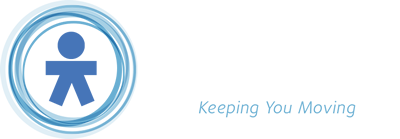Concussion: What Is It And How Can Physiotherapy Help
What is it?
A concussion is a type of traumatic brain injury, caused by head trauma such as a bump or a blow to the head. It can also happen when there is a violent neck movement that causes your brain to shake inside the skull, such as in a whiplash injury. This creates a sort of bruised brain, just like this can happen in any other body part.
How does a concussion happen?
The most common events causing concussion are falls whereby someone hits their head, traffic accidents, and sports injuries. It can occur in any sport but particularly in contact sports such as boxing, martial arts and rugby.
What are the symptoms
A concussion can have varied signs and symptoms, which sometimes present hours or days after the injury. Some of the common symptoms of concussion include:
- Temporary loss of consciousness
- Headache
- Nausea
- Dizziness
- Double or blurred vision
- Confusion
- Emotional and mood changes such as irritability
- Sensitivity to noise and light
- Feeling slowed down as if things around you are going faster and you can’t keep up
- Fatigue or tiredness – usually more tired than normal after such an event
- Poor concentration
- Difficulty remembering things
- Sleep difficulties, either getting to sleep, waking through the night or longer sleep periods
Everyone with a concussion will have slightly different symptoms, but these are some to be watchful for when someone has had a head injury. If the person injured does not recognize their concussion and let themselves fully recover, this can lead to long term problems, especially when the person has had multiple concussions in the past.
When do I need to seek medical help?
Most symptoms will fully go away after a concussion with the appropriate recovery. However, some symptoms are more serious and warrant urgent medical attention. These are:
- Neck pain and tenderness
- Double vision
- Weakness or tingling/burning in the arms or legs
- Severe or increasing headache that does not respond to simple pain relief such as Panadol
- Seizures or convulsion
- Prolonged loss of consciousness
- Deteriorating conscious state
- Vomiting
- Increasingly restlessness, agitated, or combative
These could be signs that something more serious is going on. If any of these red flags occur, call an ambulance or visit a local A&E. If you are unsure what to do, ring Healthline.
If the concussion is severe enough to need time off from work or school, make sure to see your GP for a medical certificate. They will also need to clear you for returning to many sports, especially contact sports, before you will be allowed to rejoin.
How do I recover from a concussion?
It is crucial to recover well after a concussion. The first few days are especially critical. In the first 24-48 hours, you should not drive a motor vehicle or drink any alcohol or take drugs. Initially, a period of complete rest (both mental and physical) is needed, so that the brain can recover. Avoid any screen time, loud music and noisy environments. In the first night, make sure not to go to sleep within 4 hours of the injury. After that, it is important to have a normal night’s sleep. It is not necessary anymore to wake someone every 2 hours on the first night.
After this, a gradual return to activity is necessary. Work and school activities should come before returning to sport, and if at any stage an increase in symptoms occurs, make sure to take a step back to less activity. If symptoms persist for more than 2 weeks, make sure to see your doctor or physiotherapist again, as a referral to a Concussion Service may be needed. Do not return to sports before being cleared by a medical practitioner, since a second concussion within a short time is often much more serious and can have disastrous consequences.
How can physiotherapy help?
Our physiotherapists at Cairnhill Physiotherapy have had extensive training around recognizing and treating concussion. We can support you through the recovery process and gradual increase in activity levels and can provide treatment and exercises that can provide relief from symptoms and prepare you to return to sport. People with a concussion also often have neck pain and/or dizziness and headaches, for which physiotherapy can help. Physiotherapy can decrease the duration of symptoms and can reduce the time to medical clearance to return to sports. If you or any of your whanau have suffered from a concussion, see one of our highly qualified therapists at Cairnhill Physiotherapy!
Appointments
Free carparks
available onsite
Monday - Friday:
7am-6pm
95 Mountain
Road, Epsom
